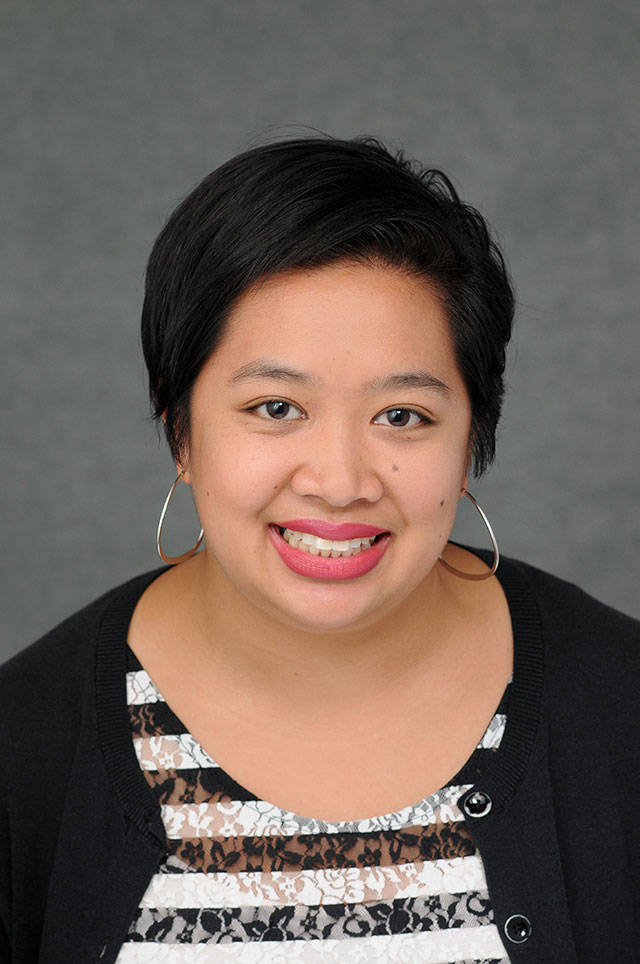A few weeks ago, pastor Lara Bolger invited me to her church, Redmond United Methodist Church (RUMC), to discuss this column.
I visited the church on Feb. 17 and while there, I discussed the genesis of Windows and Mirrors and talked about a few pieces in particular I have learned from the most. My appearance was during a regular Sunday service, and after the service I had the opportunity to talk to some congregation members.
A few people noted that I was very brave to speak at the church. I thought this was referring to the public speaking aspect of being on stage at the front of the church, all eyes on me (there’s a reason I got into print journalism and not broadcast). But at least a couple people were referring to me just going to church as I am not Christian and — as I had mentioned earlier to the group — my experience in such places of worship had previously been limited to wedding ceremonies. My family and I are Buddhist and my experience at RUMC had been my first time attending a regular church service.
The truth is, while I was honored and excited by the invitation, a part of me was admittedly a little nervous. But this had more to do with speaking in front of an audience in a new environment and less to do with the fact that it just happened to be at a church.
Throughout my career as a journalist, I have written a number of stories focused on different religious groups. And one thing I’ve experienced is that no matter the religion — whether it’s Christianity, Islam, Judaism or anything in between — I have always felt welcomed by these communities.
This open and welcoming nature is one of the defining characteristics, at least in my opinion, of what it means to be a religion.
Houses of worship are places people go to seek solace and comfort. It’s not uncommon for someone who is going through a hard time to seek out a higher power.
So when a place traditionally sought for refuge is targeted, the attack is felt all the more keenly.
But it still happens — whether it’s a black church in Charleston, South Carolina, or a synagogue in Pittsburgh. And here in the Pacific Northwest and on the Eastside, we are not immune. In recent years, mosques in Bellevue and Redmond have been targets of arson and vandalism, respectively and both multiple times.
And just last week, on March 15, two mosques in Christchurch, New Zealand were targeted in a mass shooting that took the lives of 50 people at the time of print publication.
In a world where such tragic events are unfortunately happening more often, there are a couple things we can count on happening:
People start asking why. Why did this happen? Why did the perpetrator(s) target these groups in particular? Why did they feel this way? Just, why?
People may feel unsafe. Questions are raised about whether more violence will happen in other parts of the world.
And people come out to support the targeted communities.
This support comes from around the world and extends beyond the local community.
Following the attacks in Christchurch, love, thoughts and prayers have come pouring in, supporting the city’s Muslim community as well as Muslims all over the world, making sure people feel welcomed in the communities where they live and worship.
Locally, people have been visiting local mosques on the Eastside offering these groups their support. And just as it has been happening around the world, our local police departments have also reached out to the mosques in their respective jurisdictions, making sure they feel safe and secure.
These gestures are beautiful and amazing to see. But they shouldn’t be needed — for a number of reasons.
First, in a perfect world, such acts of violence against any group — religious, cultural, what have you — would not be happening.
But we don’t live in a perfect world and violence will happen. That doesn’t mean we should be resigned to it and see it as inevitable.
It just means that we as a society need to take more time to get to know those who are different from us and learn from them. Because that’s how you build bridges between communities and when you do that, you’re more likely to find common ground and as a result, learn empathy for others.
And second, people should not need an act of violence to be reassured that they are welcomed and belong in their communities. But again, that elusive perfect world does not exist and there are people who do not feel included in their communities.
So it’s up to the rest of us to make sure they know they are welcomed and that they are important members of our communities — no matter what they believe or whether they even believe anything at all.
And it shouldn’t take something horrific happening for this to happen.



